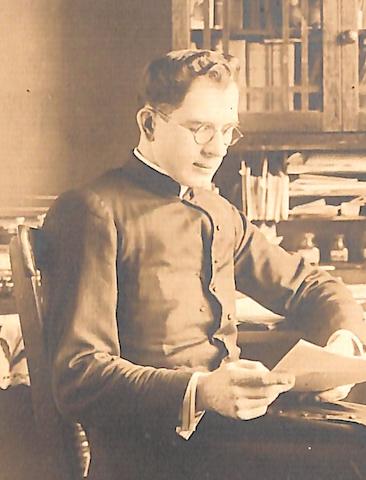Posted on July 29, 2015

When a station wagon-full of boxes containing Fr. Gregory Chomicky's papers, books, and artifacts arrived at the Center last year, it was clear that this was going to be a special collection. It wasn't until the Center's archivist Michael Andrec finished its processing that we realized just how special it was. The work took longer than anticipated due to the size and complexity of the materials, but the result, we believe, is well worth it.
The collection is wide-ranging, and documents Fr. Gregory's life and activities as a clergyman and leader of the Ukrainian Orthodox Church and the Ukrainian-American community. It contains correspondence, minutes, Church Council (Sobor) records, manuscripts, sermons, parish records (such as records of baptism and marriage, as well as notes of church announcements and marriage banns), photographs, newspaper clippings, ephemera (such as concert programs and fliers), published materials, and artifacts.
This collection is distinctive in that it contains significant quantities of material documenting the critical period in Ukrainian Orthodox church history from 1948 to 1950, and will therefore be of interest to religious historians of. It is also unusual in that it contains letters and other documents relating to Ukrainian-American life in the 1910s and 1920s, a time period which in general is poorly documented in terms of primary sources. The collection has correspondence, ephemera, and photographs related to Ukrainian-American cultural events in Cleveland, Ohio in the 1920s and early 1930s, including community participation in the "All Nations Exposition" and the "Theater of the Nations". Notebooks containing church announcements provide a unique snapshot of the daily life of Ukrainian Orthodox parishes in the 1950s and 1960s. The sacramental records, marriage banns, and related materials will also be of considerable interest to genealogists.
The full details of the collection's contents and context can be found in the finding aid.
Any interested researcher can make use of this and any other processed collection in the Center's holdings for free by contacting Michael Andrec (archives@UkrHEC.org). Due to staffing limitations, access is by appointment only.
